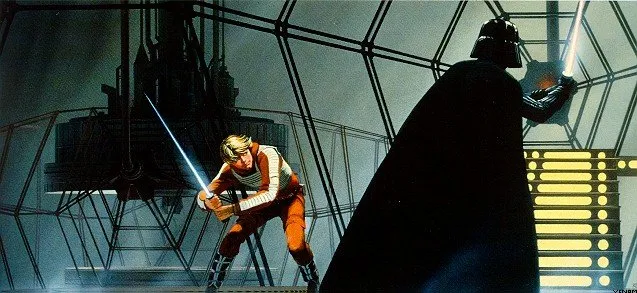"Luke, I am your father."
This misquotation has permeated popular culture, finding its place in various forms of media and everyday conversations. The persistence of this misquote offers an intriguing lens through which to explore the nature of memory, the mechanisms of cultural transmission, and the impact of context on the reception of cinematic dialogue.
To understand the misquotation, it is essential to revisit the original context within the film. The scene in question is a pivotal confrontation between Luke Skywalker and Darth Vader, set against the backdrop of a deep chasm within Cloud City. The emotional intensity of the scene is palpable, as it not only reveals Vader's true identity but also challenges Luke's understanding of his past and his destiny.
The actual dialogue, "No, I am your father," is a crucial plot twist that reshapes the narrative arc of the Star Wars saga.
The misquotation phenomenon can be partly attributed to the quirks of human memory.
Cognitive psychology suggests that memory is not a perfect recorder of events but rather a reconstructive process. When people recall a quote, they often do so in a way that makes sense within their own cognitive frameworks, sometimes altering words or context to fit more neatly into their recollections.
The prefix "Luke" provides a clear subject for the quote, making it more understandable and relatable outside the film's context, thereby facilitating its spread in misquoted form.
The process of cultural transmission plays a significant role in the perpetuation of the misquote. As the line is passed from person to person, it undergoes a form of "telephone game," where slight alterations occur at each stage of communication. The addition of "Luke" serves as a simplification that aids in the quote's memorability and transmission.
The misquoted line has been further entrenched in popular culture through its repeated use in various media, including television shows, films, books, and memes. These references often prioritize the misquote's recognizability over accuracy, reinforcing the error. Additionally, the context in which the quote is used outside the film often requires the clarification of Luke's involvement in the scene, thereby justifying the alteration for the sake of clarity and impact.















